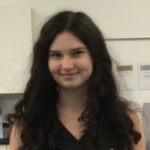Putin Caught Off Guard Upon Meeting His AI Double At Annual Press Conference
In an annual news conference, Russian President Vladimir Putin was caught by surprise when he was introduced to an artificial intelligence (AI)-generated version of himself.
The event, which connected the president via video link to callers from across the country, took an unexpected turn when the AI “double” was presented and addressed Putin.
The AI version of Putin, developed by researchers, stirred laughter among the audience in the Moscow hall when it introduced itself: “Vladimir Vladimirovich, hello, I am a student at St. Petersburg State University. I want to ask, is it true you have a lot of doubles?”
The AI continued, “And also: How do you view the dangers that artificial intelligence and neural networks bring into our lives?”
The unexpected moment saw Putin at a loss for words. After a pause, he responded, “I see you may resemble me and speak with my voice. But I have thought about it and decided that only one person must be like me and speak with my voice, and that will be me.”
Speculation that Putin has body doubles has long been a topic of conversation, particularly in Western media, fueled by widely publicized signs of potential health issues. However, the Kremlin has consistently denied such claims and insists that Putin’s health remains in excellent condition.
AI technology has made significant advancements in recent years and now allows for the creation of realistic virtual avatars and voice simulations. While the AI double’s appearance was met with amusement, it also raises broader questions about the implications of AI in various aspects of society.
As AI becomes more integrated into the public’s daily lives, it presents opportunities for innovation, automation and enhanced decision-making and simultaneously raises concerns about privacy, ethics, and the potential for misuse.
RELATED ARTICLES
Get the most-revealing celebrity conversations with the uInterview podcast!









Leave a comment